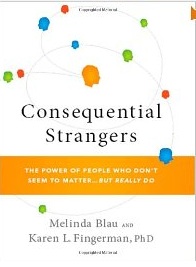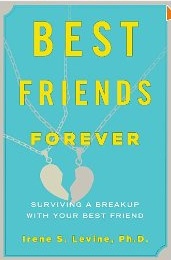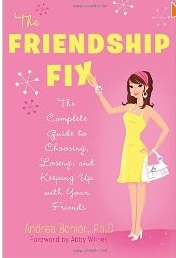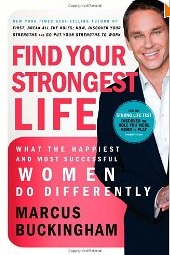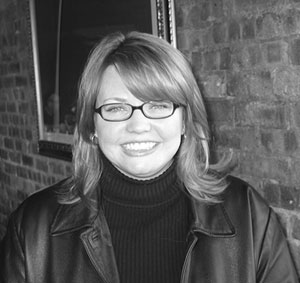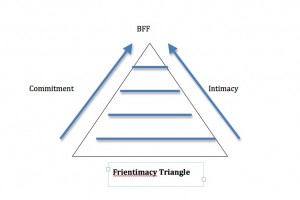This time last year I wrote a blog post that quickly became one of my most searched-for articles online: Help! Should I Tell My Friend that Her Husband is Cheating on Her? In that post I mused that I should probably write a post to guide us through the angst when we find out it is our friend who has cheated. It has taken me a year to want to sit down and write it. Finding Out That Our Friend Has Cheated
While statistics are all over the board about how many of us actually admit to having extra-marital affairs, it does seem that due to women having more economic and sexual freedom, our numbers are on the rise in the last two decades. It appears that now one in every 5 or 6 of us will end up doing what we all of us swore we never would. That means if you have 5 friends-- chances are high that this issue will impact you.
This is such a difficult subject to cover adequately due to all the possible complicating issues that could be present. For example, is she confiding in you or are you finding out another way? Does she seem intent on trying to pull it off or is she confessing that it happened and she's trying to end it? Do you know her partner and/or her lover? Is your significant other involved in any way (i.e. as a friend to her partner)? Is she confessing or is she asking you to be an alibi for her and to aid her in the relationship? Have you been wounded by marital affairs in the past, making it harder for you to come to this one without your own scabs getting pulled off? Are you happy in your own relationship?
Different answers to any of these questions would prompt different insights into the best way for you to respond, but without knowing you or the situation, all I can give are some principles that will hopefully lay a foundation for any choice you end up making. Having been on both sides of this issue, and journeying closely with several friends over the years who have confided in me the angst of juggling a second relationship, I offer my wisdom with hope and humility.
Nine Principles to Remember:
- This is her crisis, not yours. Yes, it could impact your friendship, your picture of her, your belief in love, and possibly even your own marriage, but, and this is important to remember: getting hit by some of the debris of an accident isn't the same as being in the accident. Keep this about her as much as possible. See my blog post about helping a friend in crisis to better provide a visual of how to act when you're in the outer rings.
- Nurture yourself and your relationships. With that said, if you are in a romantic relationship, be mindful that it may be impacted. It may be as a result of conversations that you have with your significant other about the subject of infidelity, the insecurities it brings up in you, or simply the questions it raises about whether you're happy or not. Recognize that while your friend is responsible for her life, she is not responsible for yours. Life will throw you a variety of subjects to process, this is your time to do so on this one. In some ways it's a gift. Be extra gentle on yourself (and your partner) as you work yourself back to a place of alignment and peace through journaling, counseling, meditation, and other self-nurture and self-growth actions.
- Don't make it personal. It is not because she doesn't trust you that she didn't tell you sooner. It is not because you were in a happy relationship that she felt tempted to go find that, too. It is not because you weren't there for her... blah, blah, blah. She made choices and you are not to blame. Additionally, there are a thousand reasons women don't tell their friends, many of them very valid reasons, so don't get steamed up about when and how you found out. Just breathe deeply and acknowledge that in the big scheme of everything she's sorting through and trying to juggle and process-- the last thing she wants is to lose a friend and the last thing she needs is to spend energy now processing yet another relationship in her life. The more you can keep reminding yourself to not take this personally, the happier you (and she) will be.
- Draw your boundaries. It's okay to say that you're not willing to lie for her, be an alibi for her with her husband, or to talk about it ad nauseam. It's okay to tell her that due to your religious beliefs, moral code, or personal history, this is a subject that you are very against or incredibly uncomfortable with. It's okay for you to state what you are able to do and what you cannot do right now; but do so in as sensitive a way as possible, with as much respect as you can, and with the intention that you still want to do what you can. It doesn't need to be all or nothing. Perhaps start with something like, "This is such a hard situation for me, though I recognize it's even harder for you. I want to love you and support you through this in the ways I can, and be honest with you where I can't right now. In what ways do you most need me right now?" And then, ask her to tell you what would be most meaningful. From there, you can honestly say yes to what you can and no to what you can't.
- You are her friend, not her counselor. She may be so relieved to finally have you know her secret that she's at great risk of confiding waaay too much to you. This is her affair, not yours, you don't need to hear all the details. Tell her with all the love you can, "I want to try to navigate this in a way that protects our friendship and serves us both as best as possible... and, I think, that includes you making sure you have the expert support in your corner to process this with." It's unfair to put you in a place of counselor. And she needs one.
- Acknowledge that she is still a good person. I really do believe that everyone is doing the best they can with what they have at the time. She didn't wake up one day with the intention to hurt anyone or to not live up to her own values. She made bad choices, but that doesn't make her a bad person. Be very cautious to protect your thoughts about her, whispering a form of the prayer, "Help me see her the way God sees her." Or, "I see that part of her that is beautiful, good, and pure."
- Her feelings are real. We might not like them, but they're real. Real in that regardless of how we feel about her inappropriate relationship, she is feeling intense feelings of love, hope, and feelings of being valued, admired, and needed. In other moments she is, undoubtedly, feeling shame, denial, and guilt. We all know those feelings. We might hate what is causing her to feel that way or disagree that she should feel them, but far better for us to try to empathize. We know what it feels like to be torn; we know what it feels like to want to be loved, we know what it feels like to think about breaking up with someone you care about. We don't have to condone her behavior to say, "It makes complete sense to me that you'd be drawn to that," or "I can't imagine how sad you must feel as you grieve the end of that relationship." Love doesn't have to agree in order to support.
- Be mindful of our judgment. From the Christian scriptures comes a saying: "Let he who is without sin cast the first stone." It was what Jesus said to the crowd who wanted to stone a woman for committing adultery. I invite you to be mindful of the fact that we are all in process and all struggle with actions that are hurtful to ourselves and others. Yours may not seem as glaring, so be thankful for that! Then with humility recognize that you, too, have made mistakes, and that you're still struggling with discontent, jealousy, complaining, greed, criticism, or gossip. We are all learning the lessons we need to learn. She will learn hers. And she'll surprisingly learn it better when compassion is shown (so she doesn't have to feel defensive) as love is what empowers us to grow. Shame simply paralyzes people. We want her to grow so we want to act in as many ways as possible that invite her to courage, compassion, and hope.
- Know that this too shall pass. Yes it will! I promise. It may feel like more drama than you can handle right now (and that's okay, try to be present as you can and honest when you can't) but someday she is going to wow you with the rebuilding of her life. She's going to be laughing again, present again, and hopefully more healthy and mature because of the life lessons she is learning now. And when you find yourself in a crisis, she'll be someone you know you can trust to not judge you, to support you, and to understand.
This is, by no means, a comprehensive list. I could keep going for days. And I'm very aware that you could get done reading the list and still not know the best way to respond. I therefore write these words with a prayer that accompanies them that anyone who reads this looking sincerely for guidance will find it. May those who seek, find. May those who are unsure, err on the side of love. May you be given an extra dose of compassion, energy, strength, and love today... your friend needs it.




